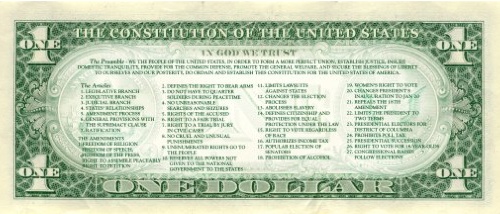Introducing Assets of America

In the final months leading to Election Day, the Nader/Gonzalez campaign would like to feature some organizations we consider to be "national assets." These groups each seek to advance, in their own way, the quality of our democratic society and its pursuit of justice and happiness. These non-profit organizations — some venerable, some of more recent vintage — show the way for vibrant civic and cooperative energies and a stronger democracy. They also demonstrate institutional solutions to the problems which societies should not have to endure.
There exist many more of these organizations in our country. We wish to feature some which have caught our attention. Selection of these particular groups for highlighting in no way implies total agreement or any stratification of efficacy or importance vis-à-vis those larger number of organizations that are not posted. We urge the other campaigns to find room for such recognitions in the future. It is important to recognize those who are bravely taking on the task of securing for Americans a better future. In no way has the selection of any of these associations implied their support or endorsement of our campaign.
There can be no daily democracy without daily citizenship. -- Ralph Nader
The Liberty Bill Act - An Asset of America
It began as a civics class project, an idea developed by students of Liberty Middle School in Ashland, VA, but now it is a bill before Congress, an example of citizens taking ownership of their government. The "Liberty Bill Act," first introduced in 1998, is a bill proposing the printing of an abbreviated version of the U.S. constitution onto the back of one-dollar bills.
Working with their teacher, Randy Wright, the students of Liberty Middle School believed that changing the design of one-dollar bills would lead to greater awareness and appreciation of our constitution. By viewing the constitution during our daily purchases, citizens would constantly be reminded of our right to assemble, our freedom of speech, and our right to a fair trial. “Other interactions can be envisioned.” states Mr. Nader, a strong supporter of the bill. “When police try to order you out of a public park while you are petitioning your government, show the constables what is on that dollar bill in your pocket.”
The students believed that by making our constitution more accessible, citizens would take more pride in our history and become more aware of the laws of our country. Our nation’s story of progressive reform, from the abolition of slavery to women’s right to vote, would be etched into our everyday commerce. Newly printed bills would remind us that "We The People" founded this nation.
With two-thirds of our currency circulating abroad, the "Liberty Bill Act" would also inspire citizens of other nations. Using the small space on the back of the bill, our founding principles would be seen and discussed in developing countries. Soldiers stationed abroad would also have ready access to the principles for which they are serving. Moreover, the seven billion one-dollar bills would pass through many hands and would freely promote American values—something the US Information Agency currently spends half a billion dollars to accomplish. The "Liberty Bill Act," conversely, would cost only a half million dollars to implement, a fraction of those costs, and the educational benefit to citizens would be priceless.
Originally presented in the House and Senate in 1998, the "Liberty Bill Act" has been reintroduced in every Congress since then. During the 106th Congress, one hundred and seven representatives cosponsored the bill—one of only five bills in the House cosponsored by both the Speaker and the House Minority Leader. During the 107th Congress, students from Liberty Middle School spoke in the East Wing of the White House and testified on the design and security of currency before the House subcommittee on Domestic Monetary Policy, Technology, and Economic Growth.
The bill has received broad, bipartisan support, with praise coming from the Military Order of the Purple Heart, The Wall Street Journal, and Veterans of Foreign Wars of the United States. And once again the "Liberty Bill Act" has been reintroduced in the House, sponsored by Congressman Eric Cantor of Virginia.
The “Liberty Bill” would serve as a daily civics lesson for millions of Americans who increasingly cannot name the rights guaranteed to them under their own Constitution. It is Mr. Nader’s hope that citizens then “might strive to hold their elected and appointed officials to these ideals in practice, not just in the latter’s rhetoric.” An informed populace is an empowered populace.
It has been ten years since the "Liberty Bill Act" was first introduced, but it remains a strong example of how citizens can engage the democratic process. Encouraging passage of the bill, Ralph Nader states, "One can expect billions of conversations and debates arising from this constructive use of space."
The one-dollar bill is redesigned approximately every ten years. Let’s make this incarnation of the bill an educational, as well as fiscal, tool.
The Liberty Bill Act—HR 4856—deserves our support.
Sources:
http://cantor.house.gov/
http://hcps2.hanover.k12.va.us/lms/Liberty%20Bill/Speeches07.pdf
http://www.visi.com/juan/congress/cgi-bin/newcommittee.cgi?site=ctc&lang=&commcode=hfs_monetary
http://www.thomas.gov/cgi-bin/bdquery/z?d110:HR04856:@@@L&summ2=m&
http://hcps2.hanover.k12.va.us/lms/Liberty%20Bill/libbill.htm



